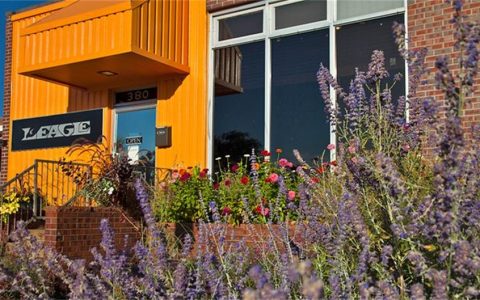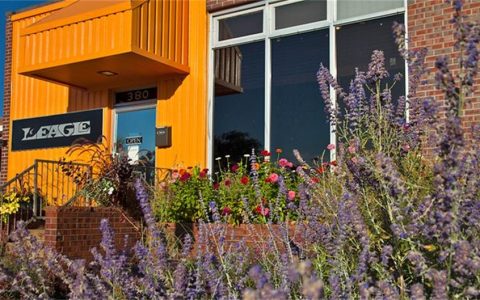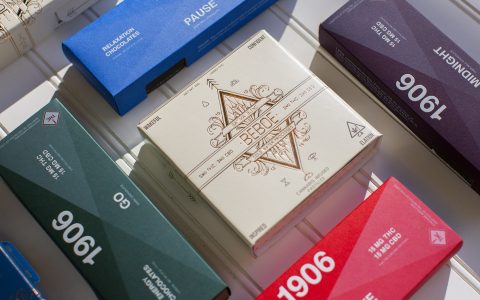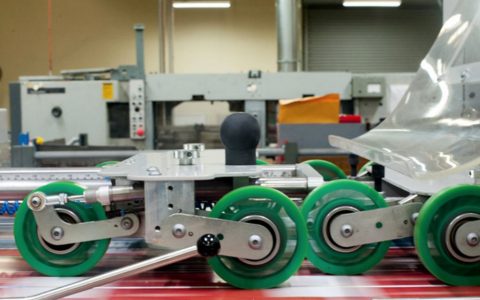With cannabis legalization working its way across the country, more and more cannabis products are being produced and sold. With the increase in sales comes a growing concern about the waste generated from packaging materials and how to make this part of the burgeoning industry more sustainable.
It’s estimated that between 4.8 and 12.7 million tons of plastic materials make it into the ocean annually according to a 2015 study published in Science. Due to regulations and costs, cannabis packaging has to be childproof and affordable leading processors to use heavy duty plastics, many of which can’t be recycled. Some brands in the industry have responded by using recyclable materials such as glass, cardboard, cork, and hemp-based plastics.
A new company, Sana Packaging, has created a line of packaging for cannabis products using plastic removed from the ocean. The project is the first of its kind in the cannabis industry and could help solve the question of how to keep cannabis packaging sustainable, while also protecting the ocean.
A Change Is Needed
Cannabis has long inspired a connection with the environment. Many consumers find themselves wanting to slow down, work in the garden, go for a hike, or connect with nature in some other way.
Cannabis inspires an awareness of our impact on the planet, and it makes sense that the industry as a whole should be concerned with how it affects the ecosystem. Legalization has come quickly and the excitement of it has left some of these environmental considerations with cannabis behind.
Currently, six of the ten states with recreational cannabis have coastal boundaries, putting cannabis packaging at a higher risk of making its way into our oceans. Sana Packaging’s business model aims to inspire both producers and consumers to realize that there is a more sustainable way to do business.
The Sustainable Business Model
Sana has already been facing the packaging crisis head-on as one of the first companies to produce plant-based packaging for cannabis. With this new project, they’ve teamed up with business partner Oceanworks to fight against ocean plastics.
Oceanworks has been removing and recycling plastic from the ocean since 2016, with the long-term goal of a having a plastic-free ocean. They work as the middleman between collectors and recyclers and businesses that use the plastic to create a product. They are able to incentivize the removal of plastics from the ocean while making a resource available to businesses that wish to help the environment.
Oceanworks also traces the origins of the plastics to create a narrative and educate consumers on where the plastic for their cannabis comes from.
The story of the plastic used by Sana begins in Haiti, where local Haitians are paid by weight for various types of plastic pulled out of beaches, streams, and the ocean. Sana will be using HDPE plastic, which generally comes from laundry detergent packaging and milk jugs.
Workers bring the plastic to recycling centers where it is melted down and turned into pellets. The pellets are shipped to Sana’s facilities and used to create their new containers for cannabis, which ideally will continue to be recycled in the future and stay out of our oceans.
According to Tim Lewin, Account Manager at Oceanworks, there is no shortage of plastics that need to be pulled from our oceans, and with an economic incentive, there are workers eager to earn a living.
“It is unfortunate for the environment there is so much plastic to collect, however, we have found workers are being paid a very liveable wage and this has been a boost to the local economy,” says Lewin.
Finding a Voice
Looking out for the environment and being a conscious consumers extends to all products and facets of life, whether it be food, clothing, transportation, or cannabis.
The cannabis industry is in its infancy, and now is the time to start thinking about how it will impact the environment and how to make it sustainable. It will continue to grow and thrive and it’s better to have sustainable models in place before the industry gets too big and more difficult to change.
James Eichner, co-founder and CSO of Sana Packaging
James Eichner, co-founder and CSO of Sana Packaging, encourages consumers to get involved. “I think the biggest thing cannabis consumers can do is make their voices heard,” he said. “Consumers absolutely have the power to drive change in the marketplace. Every time you go to a dispensary, talk to the budtenders about packaging waste. Reach out to your favorite brands and let them know what you think about their packaging. Let everyone know you’re sick of cannabis packaging waste and let everyone know that solutions exist.”
It’s important to remember that budtenders can answer any question about the cannabis you are buying, even about how it’s packaged. Being a conscious consumer can also extend to cannabis consumption. Movements such as the #whatsinmyweed campaign urge consumers to empower themselves when they walk into a store to purchase cannabis.





